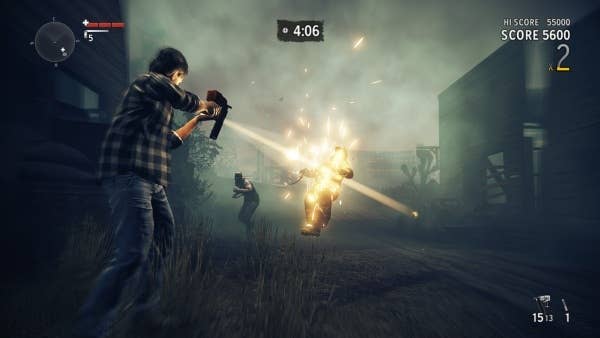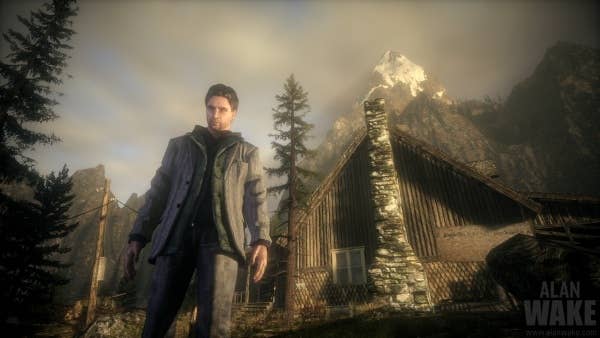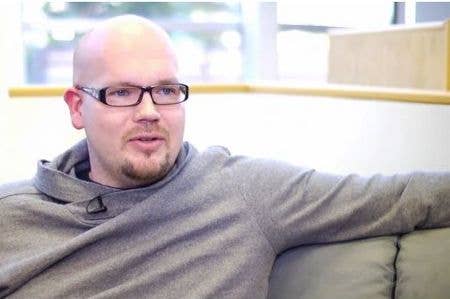Remedy Entertainment: Real Artists Ship
Matias Myllyrinne of the Alan Wake and Death Rally studio, on the best way to prove your product: ship it to the consumer
Remedy Entertainment is in a comfortable position right now, taking stock of its work after successful releases such as Alan Wake on PC, the American Nightmare follow up and the steady success of Death Rally on mobile, a title that has notched up over 10 million downloads.
In this exclusive interview with GamesIndustry International, Matias Myllyrine, managing director of the studio, discusses the true test of a successful company, how relying on metrics to design games kills off innovation, and why publishers still have a significant role for games developers.
"All of [our games] make money, all of them are profitable and that's a high bar to hit"
We're always trying to improve our craft and do things better and yes, we're working on stuff but on the other hand it's a great time in the industry and a great time for us. I don't think there's ever been a better time to be making games. It's not a matter of can we do something that people like? It's no longer about convincing a publisher to take a product to Walmart and to carry a product. You can put it on Steam, you can put it on iOS, whatever makes sense. We love our big stuff and that's happening as well, but certainly with things that we do ourselves, we can put our chips down on the table. All of them make money, all of them are profitable and that's a high bar to hit, but it's also about what impact your game has with an audience and can you build it into something larger.
Yes, there are very real projects happening. And we've grown a fair bit to around 75 staff. We wrapped up Alan Wake with 55 people including freelancers. So it's good times in that perspective, there seems to be a lot of good people out there. And there's a lot of opportunities out there right now in terms of the channels, in terms of the audiences, in terms of the talent.

It's been more across the board. When we look at what our studio is known for and what we're good at you have to work to your strengths. We've hired writers, we've hired technology and animation talent. But really it's about strengthening teams across the board. It's not a platform specific thing. We're trying to hire people who are good and the last thing we want is to hire people for a particular platform with a particular skillset. We need skills that transfer because those platforms are changing. The hardware cycle is really, really rapid on the tablet side, for instance.
The analytics guys are doing some great work, and that's import but an interesting thing I've seen, and I'm not terribly worried about it, but it's disheartening that when people start building their games to a spreadsheet it's like putting cars through a wind tunnel - they all come out looking like bullets. They are pretty much the same thing, the only thing that changes is the upholstery. People will figure out that they are self-optimising in this one space when you should be creating and innovating new stuff, not working to a template. There's going to be fatigue with some of that stuff. But if you come out with something that innovates you'll make more money.
"When people start building their games to a spreadsheet it's like putting cars through a wind tunnel - they all come out looking like bullets"
I'm sure they use the backend analysis, we do. How long are people playing, are they buying stuff in-game? Even with Alan Wake on the 360, we got achievement data, how many complete the game, how many complete it twice. That's valuable information, good numbers and you can update as appropriate. But there's a difference between using that data to create something, and what do you do if you're creative efforts are defined by a spreadsheet? Don't get me wrong, I'm fine with numbers I have a MBA in finance.
That's not the reason I went into games.
I sincerely hope so, it's very good for us business-wise, it keeps us going. The only way you really learn is by shipping something, going out there and doing it. So we're very lucky to work across those platforms and reach those audiences. I think for us going forward it's really nice to have a mix of projects. I'm not too worried about where the business models go. So long as you create good content and know how to create good content you can get it out there. People will come.

If you look at TV and film in the 50s and 60s, with television coming into the living room people thought there would be problems with cinema. But obviously we still go to the cinema once a month and now download movies directly with a new business model, but the content hasn't gone away. Do YouTube videos destroy the value of Avatar? I don't think so. There's a lot of doom and gloom over triple-A games. These all serve a very different need, a very different appetite. Maybe the business models around games will change but so what? It's still about content. Ridley Scott can direct a commercial, a TV show or a movie, it's still a Ridley Scott creation.
We're going to be a Remedy studio. We have a certain thing about our games, they're accessible to the mainstream but they also have something about them, they have a personality. It is a craft and we do treat it as art and we have something to say with each game. But all have been successful. Alan Wake on console took a long time but I felt that we pushed the envelope in story-telling and certain themes, we wanted to build a thriller. On a higher level we succeed in what we wanted to achieve. It took longer than we expected, we didn't do the sandbox design that we originally intended but it delivered in the vision we wanted. It's sold past 2 million units with the PC version.
"The only way you really learn is by shipping something, going out there and doing it"
With American Nightmare we tried something shorter and more tongue in cheek and that was fun, to do something where we ditched story and content and delivered a triple-A game via download on consoles. Death Rally, I'm really proud of. Our return on investment was very good if you look at how much money we put in and how much money that came out of it. We've done over ten million downloads, two on Android and eight on iOS. Some of those were free through promotion. But I love the fact that we also got to work with Apple and see how they worked. And then finally doing the PC version of Alan Wake, seeing how Steam works and it also brings a digital back catalogue that we didn't have before, there's a tail there and that did tremendous revenue for us. Those things bring a steadiness to your business, all your eggs aren't in one basket.
It's a games business, I get it, we need to be profitable, we need to be successful in what we do if we want to continue for a long period but hopefully we'll continue to pick projects that have a soul, they have purpose for being there. Can we do something interesting in the iOS space that hasn't been done before? And the same with the console download space, hopefully something that other's haven't already done.

If we look at the larger projects the needs are very much the same as before - the ability to finance and market good games, it's $50 million-plus, only a very few developers that have that sort of money. People can certainly create games and go at it themselves. We've worked with a publisher, without a publisher. One person came to me yesterday and said "the dumbest idea you can have is to self-publish on iOS". Look at the top 20 and look at who stays in the top 20. I think they have a role but on certain channels you need a publisher. In the mobile space it comes down to cross-promotion and getting access to gamers and getting facetime with them. An individual developer does have solutions that they can use but publishers have had more iterations of getting users.
I don't think it really helped with a lot of the people, the broader audience. Maybe for some. But where it did help was we were able to reach the influencers, the media. The media were interested in a Remedy game and their readers were interested in a Remedy game and it certainly helped with Apple supporting us, and the Free App A Day campaigns, they were tremendous. Don't underestimate word of mouth. The majority of iPhone games I've bought and tried, most of them are through friend recommendations. And because the barrier of entry is so low - 99 cents - you try it. And there are brands that do work, Total War on the iPad for one. But I'd be surprised if even that brand resonates beyond the fans to hit a wider audience.

